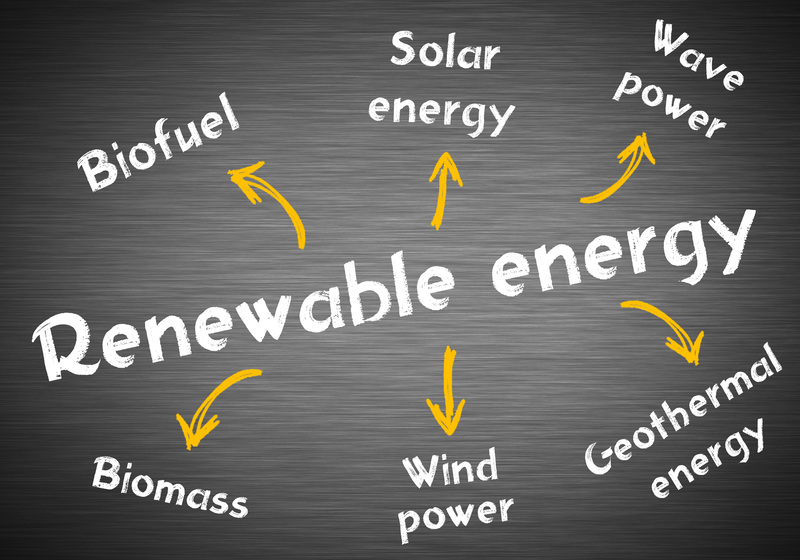Secrets to Saving Money on Large Item Waste Management
Are you renovating your home, cleaning out a garage, or dealing with bulky furniture and appliance removal? Tackling large item waste management can be overwhelming--and expensive. However, with the right strategies, you can cut costs, minimize hassle, and even benefit the environment. In this comprehensive guide, we'll share the top tips, hidden tricks, and expert advice to help you manage large waste items affordably and efficiently.

Understanding Large Item Waste Management
Large item waste, also referred to as bulk waste or bulky waste, includes oversized household items that are too heavy or large for standard curbside trash collection. This can include:
- Furniture (sofas, mattresses, tables, dressers)
- Large appliances (refrigerators, stoves, washing machines, air conditioners)
- Carpets and rugs
- Yard equipment
- Electronics (TVs, computers)
- Exercise equipment
Proper disposal of bulk items is not only crucial for environmental reasons but also necessary to comply with your local regulations. Fortunately, there are several cost-saving techniques to manage this type of waste.
Why Is Disposing of Bulky Waste So Expensive?
It is essential to understand why large item waste disposal can be costly. Factors influencing the price include:
- Special equipment and labor needed for heavy lifting
- Transportation fees for oversized loads
- Landfill or recycling center charges
- Government regulations and permits
- Hazardous material handling (e.g., refrigerants in old fridges)
With this in mind, let's explore proven ways to save money on large item removal without sacrificing convenience or eco-friendliness.
1. Check Municipal Bulk Pickup Services
One of the easiest and most affordable options for managing bulky item waste is to utilize your city or town's municipal bulk pickup program. Many communities offer free or low-cost curbside collection for big items a few times each year.
How to Take Advantage of City Services
- Review your local waste management website for the schedule, eligibility, and restrictions.
- Register in advance, if required, since spots fill up fast.
- Follow rules: Some items may require separate registration, limits on quantity, or special prep (e.g., doors off refrigerators).
- Plan accordingly so you're not stuck storing items for months.
This service can eliminate hefty hauling or dumping fees and is an excellent first step towards saving money on disposal.
2. Explore Donation or Resale Opportunities
If your large waste items are still functional, donating or selling them can put money back in your pocket or provide a tax deduction. Plus, you'll help reduce landfill waste and benefit others.
Where Can You Donate or Sell Bulky Items?
- Charity thrift stores (like Goodwill or The Salvation Army), many of which offer free pickup
- Online marketplaces (Facebook Marketplace, Craigslist, OfferUp) to sell or give away items locally
- Non-profit organizations seeking furniture, appliances, or building materials (e.g., Habitat for Humanity ReStores)
- Community swap events or "free stuff" curb alerts
Preparing items for donation may involve a quick cleaning or minor repair, but the savings and community impact are well worth the effort.
3. Break Items Down Yourself
Hauling and disposal fees often depend on the size and weight of your waste. Disassembling items before requesting pickup or drop-off can significantly cut costs. For example, a broken-down sofa or dismantled bed frame is easier to handle and sometimes qualifies as regular trash instead of bulk waste.
Tips for Breaking Down Bulk Waste
- Remove cushions, legs, and non-essential parts to make items more compact
- Cut up large wood or metal pieces with a saw (where safe and permitted)
- Follow local guidelines about separating materials (wood, metal, fabric, electronics, etc.)
- Be cautious with hazardous components--refrigerants, batteries, etc.--and dispose of them properly
*Always wear gloves and safety gear when working with heavy or sharp materials.*
4. Compare Private Junk Removal Services
If municipal pickup or donation isn't an option, you may need to hire a junk removal company. Prices vary widely, so shop around for the best deal. Look for:
- Transparent pricing--beware of hidden fees!
- Customer reviews and satisfaction ratings
- Special promotions and discounts (some offer first-time customer deals)
- Services tailored to large item pickup and disposal
You can often save money by grouping multiple items together, since many companies charge by total load size rather than per item. Also, consider off-peak dates/times, as pricing can be lower during less-busy periods.
5. Rent a Dumpster--But Share Costs
For large-scale projects or multiple big items, renting a dumpster may make sense. However, dumpsters can be costly if underused. To maximize value:
- Coordinate with neighbors, friends, or family to share the cost
- Calculate the right size--don't overpay for unused space
- Sort materials as best as possible (metal, electronics, etc.) for recycling or specialized disposal
- Check if the rental company includes pickup and landfill fees in their quote
Shared dumpster rentals not only save money but also encourage community cleanups and eco-friendly practices.
6. Use Specialty Recycling Programs
Some items, especially electronics and appliances, can be recycled for free or at reduced cost through dedicated recycling programs. Many appliance retailers, electronics stores, and manufacturers partner with recycling initiatives to keep materials out of landfills.
How to Find Large Item Recycling Options:
- Search your city's waste management or public works website for electronics/appliance recycling events
- Check with retailers; some include old appliance removal with new purchases
- Look for "take-back programs" advertised by major brands
- Contact local scrapyards or recycling centers for drop-off guidelines
*Pro tip:* Many electronics recycling events offer free drop-off for residents--perfect for old TVs, monitors, or computers.
7. Watch for Illegal Dumping Penalties
Trying to avoid fees by dumping bulky items in unauthorized areas is illegal and costly! Fines for illegal dumping can quickly exceed the price of legitimate disposal--with fines often ranging from hundreds to thousands of dollars. Always dispose of large items through approved channels.
8. Leverage Pickup with Purchase Deals
If you're replacing appliances or furniture, many retailers offer free or discounted removal of your old item with delivery of a new one. Take advantage of this to avoid extra trips, hauling fees, or the hassle of arranging separate disposal.
- Confirm with your retailer if old item removal is included in their delivery fee
- Schedule removal to coincide with your new purchase delivery for convenience
Maximize Savings with These Additional Strategies
- Bulk Waste Vouchers: Some cities provide annual bulk waste vouchers for free or discounted disposal at landfills or transfer stations.
- Community Cleanups: Participate in or organize neighborhood clean-up days, which often include free disposal services for large items.
- Smart Timing: Dispose of large items during "clean-out amnesty weeks" or special seasonal events when fees are waived or reduced.
- Tax Deductions: Get a receipt when donating items to approved charities--these can potentially qualify for a tax write-off.

Frequently Asked Questions About Large Item Waste Management
What items are typically considered bulk waste?
Anything too large/heavy for normal trash service--furniture, appliances, some landscaping debris, and some electronics.
How can I avoid hidden fees with junk removal services?
Always request upfront, itemized quotes, and clarify exactly what's included (labor, fuel, dumping fees, etc.).
Can I take large items to the landfill myself?
Yes, but check for rules about accepted items, fees, and permit requirements first. Be prepared to provide proof of residency and separate recyclable materials.
Does breaking down items really save money?
Yes--smaller, separated materials are usually easier to handle and sometimes accepted as regular curbside trash or recycling.
Are there any free options for large waste management?
Local municipal pickup, charity donations (with pickup), electronics or appliance recycling events, or combining services with neighbors can all be free or very low cost.
Final Thoughts: Be Smart and Resourceful
Effective and budget-friendly large item waste management is possible with a little planning and creativity. By leveraging local resources, breaking items down yourself, and exploring donation or recycling options, you can save money and do your part for the planet. Remember--don't let bulky waste break the bank. Use these insider secrets to make your next big cleanout stress-free and affordable!
Start Saving Today!
Ready to tackle your own large item disposal project? Follow these expert tips and unlock the secrets to minimizing costs while maximizing convenience. For more advice and local service recommendations, explore our other articles on sustainable waste management and home improvement.
